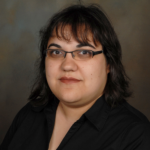Individual Research Projects
-
ESR1: Natural Modality, Essence, and Grounding
According to Humean theories of natural modality, the world’s basis is entirely ‘loose and separate’: ultimately, there are no real connections between distinct entities. Natural laws are just generalizations that fulfill further conditions, such as being part of the best system as judged in terms of explanatory power and simplicity. Anti-Humeans, by contrast, assume real connections in nature: primitive laws of nature, primitive counterfactual facts, dispositional essences, or relations of nomic-necessitation among the fundamental universals.
My research project concerns the role that the notions of grounding, fundamentality, essence and explanation play in this debate on natural modality. I explore how the arguments in the debate can be clarified and re-evaluated in light of recent developments in the literature on these notions, with the aim of elucidating the extent to which the arguments ultimately rely on background assumptions about these notions. In addition, my research addresses broader dialectical questions about the interaction between the two debates. I am particularly interested in the following arguments: the explanatory-circularity objection against Humeans, the inference problem for anti-Humeans, as well as arguments for the conclusion that dispositional essentialism conflicts with commonly held assumptions about grounding and essence.
Early stage researcher:
Lisa Vogt
Supervisor:
Sven Rosenkranz
Supervisor:
Esa Díaz-LeónPHD Programme:
Host Institution:
-
ESR2: Thinking about the Same and Genuine Disagreement
My investigation is concerned with some general and particular questions about concepts. On the more particular side of things, I am interesting in cases where it is hard to decide whether two people have the same concept or not – that is, cases where it is not clear whether both parties are talking about the same thing. Indexical concepts are one interesting instance of that sort of case. I intend to find out what is special about those concepts and whether they can be given a satisfying account of their identity conditions. On the more general side, I am interested in assessing the metaphilosophical view that philosophy is, at its heart, the activity of conceptual analysis. While there might be some initial plausibility to that view, it leads to some controversial consequences, such as that philosophers are not directly concerned with the world, but only with its representations. I will assess that view and compare it with its extant alternatives.

Early stage researcher:
Matheus Valente Leite
Supervisor:
Manuel García-Carpintero
Supervisor:
Josep MaciàPHD Programme:
Host Institution:
-
ESR3: The Controversy over Liberty in Early Eighteenth-Century England
The question of liberty and necessity – viz. the question whether we are genuinely free in performing our voluntary actions or not – has been largely debated throughout the history of philosophy, and is still at the centre of many contemporary philosophers’ research. The early modern period is without any doubt one of the richest and most interesting for the study of the free-will problem, since the debate started then to shape as we know it nowadays. In my doctoral research, I concentrate on the early eighteenth-century British debate over free will and necessitarianism (i.e., determinism), in the years that followed the publication of two fundamental works for English philosophical and scientific culture, namely Isaac Newton’s Mathematical principles of natural philosophy (1687) and John Locke’s Essay concerning human understanding (1689). My research has three main goals. (1) To deepen our understanding of the early modern debate on liberty and necessity in England, focusing on authors (William King, Samuel Clarke, and Anthony Collins, among the others) never adequately studied by the historians. (2) To provide a critical study of such a debate, concentrating on argument exchanges rather than on broad historical pictures. To achieve this result, the study of controversies will play a major role. (3) To analyse key notions that still play a momentous role in the contemporary free will debate, illustrating their origin and constitution, as well as their legitimacy.

Early stage researcher:
Giada Margiotto
Supervisor:
Richard Glauser
Supervisor:
Fabrice CorreiaPHD Programme:
Host Institution:
-
ESR4: The Asymmetric Nature of Time: Exploring the Fixity of the Past and the Openness of the Future
A basic intuition regarding the nature of time is that there is a difference between the future and the past: the past is fixed once and for all, while the future is open and replete with many possibilities. This intuition is so deeply ingrained in our manifest image of the world that it seems hopeless to do without. We decide, we hope, we gamble, we regret, we remember, we forgive. All these common attitudes – and there are many more – presuppose an open future and a closed past. However a number of arguments, mainly taken from contemporary physics, have been put forward to show that this asymmetry between the future and the past is in fact illusory. For example, the block universe, inferred from the results of the Theory of Relativity, does not reflect any such asymmetry. Likewise, the fundamental laws of physics, which are time-reversal invariant, does not underpin any asymmetry regarding the nature of time. So, in my 3-year research project, I aim to conceptually improve the way we (as non-physicists) think about the nature of time in order to reconcile our commonsense with the most salient scientific theories.

Early stage researcher:
Vincent Grandjean-Perrenoud-Contesse
Supervisor:
Fabrice Correia
Supervisor:
Richard GlauserPHD Programme:
Host Institution:
-
ESR5: Epistemic Evaluation
There are several dimensions of epistemic evaluation. For example, we evaluate beliefs for truth, knowledge, reliability, and also justification. The last of these examples – namely, justification – differs from the others insofar as one can have justified beliefs but without them being true or reliable. Consequently, an important task in epistemology is to give an account of how justification comes apart from these other dimensions of epistemic evaluation. My research project is mainly focused on the nature of epistemic justification, and in particular the internalism/externalism debate. In my dissertation I seek to develop new arguments in favor of an access internalist account of justification, according to which one always has a sort of privileged access to epistemic facts about which doxastic attitude one has justification to adopt toward any proposition.

Early stage researcher:
Jonathan Egeland Harouny
Supervisor:
Åsa Wikforss
Supervisor:
Mikael JanvidPHD Programme:
Host Institution:
-
ESR6: Perception, Imagination and Justification
When we imagine, it can feel a lot like having a visual experience. Our eyes are shut, yet we still get a mental image of some kind of world, full of objects and properties. Yet for all their similarity, perceptual experiences and episodes of the imagination are importantly different; and not just for the fact that when we imagine, none of our sensory apparatus is in use.
I argue that when we imagine, we can gain justification formodal beliefs – beliefs about what is possible – but we cannot get justification for empirical beliefs. Empirical beliefs tell us how things are in reality, right now. Giving us reason to form such beliefs, I argue, is the job of perceptual experiences instead.
But what is it about imaginative experiences and perceptual experiences that explains for this important epistemic difference between them? If they subjectively feel like similar experiences, then it cannot be their ‘phenomenology’. I will explore the argument that a key difference lies in how much agency we have over what these mental states represent: that in a good case of a visual experience at least, this is not up to us; whereas when we imagine, on the other hand, we can have a great deal of command over what we imagine.
Early stage researcher:
Madeleine Hyde
Supervisor:
Kathrin Glüer-Pagin
Supervisor:
Åsa WikforssPHD Programme:
Host Institution:
-
ESR7: The Structure of Paradoxical Reasoning
My research project centers on paradoxes of truth. These are paradoxes such as the Liar: A sentence that says about itself that it is not true. Typically we would assume that every sentence is either true or false. However, assuming that the Liar sentence is true, then what it says must be the case thus it is false. Similarly, if we assume that it is false, then what it says must be false and therefore it is true. So, either way the Liar sentence seems to be both true and false. This conclusion is inacceptable as it contradicts our earlier assumption that any sentence is either true or false (but not both) and it would allow us to derive any proposition whatsoever.
Various solutions to paradoxes such as the Liar have been proposed in the literature. Many of them focus on ways giving up the assumption that sentences can only be true or false – or that they cannot be both true and false. In my project I develop a rather new approach following the idea that we ought to restrict the underlying structure of reasoning. Rather than giving up principles governing the use of e.g. “not”, I argue that we ought to restrict the use of structural principles of reasoning such as transitivity. The latter is a principle that allows us to conclude from “A implies B” and “B implies C” that “A implies C”. Interestingly, such structural features figure in all paradoxes thus restricting them makes up for a particularly fruitful and beautiful solution to the paradoxes.
Early stage researcher:
Jonathan Dittrich
Supervisor:
Hannes LeitgebPHD Programme:
Host Institution:
-
ESR8: Vagueness, Paradox, and the Semantic Representation of Tolerance
The tolerance principle, i.e. insensitivity of the justice with which a vague predicate is applied for sufficiently small changes, is highly intuitive but also susceptible to the sorites paradox. Preserving the tolerance principle without leading to the paradox is truly challenging. This is why most theories of vagueness reject tolerance to avoid the paradoxical consequences. In this project, I aim to provide a semantics for the tolerance principle without leading to the paradox. To do so, first, I show that so far, the semantics that promote preserving tolerance within model theoretic frameworks actually fail to genuinely preserve it. What these semantics preserve is the idea of quasi-tolerance, as it is known in the literature, not the original principle. Next, I will explore the possibility and requirements of preserving tolerance within model theoretic frameworks. Finally, I investigate the possibility of preserving tolerance within other semantic frameworks, such as game semantics.

Early stage researcher:
Ali Abasnezhad
Supervisor:
Hannes LeitgebPHD Programme:
Host Institution:
-
ESR9: Epistemic Inequality Reconsidered
The project I am pursuing, whose name is Epistemic InequalityReconsidered (EIR), explores the topic of epistemic inequality as an epistemically relevant phenomenon that is still in need of philosophical inquiry. In particular, this project focuses on the positive side of epistemic inequality, which amounts to fundamental opportunities for a subject (or a group) to achieve epistemic goods – such as knowledge, warrant, understanding, and intellectual virtues – from those who are epistemically superior to them. My approach is primarily devoted to disentangling the main epistemological issues arising out of this broad topic, but I am also particularly interested in shedding light on the relevant ways in which this research could intertwine with – and benefit – the epistemology of education.
The following list includes several specific topics that I am currently working on as part of EIR: epistemic authority and cognitive expertise; the social dimensions of warrant; epistemic paternalism; non-peer epistemic disagreement; trust and testimonial warrant.
Early stage researcher:
Michel Croce
Supervisor:
Duncan Pritchard
Supervisor:
Aidan McGlynnHost Institution:
-
ESR10 : Epistemic Externalism and the Structure of Justification
I am interested in a family of problems surrounding the structure of epistemic justification. For example, questions such as whether one needs to be justified in taking it that one’s perceptual faculties are reliable in order to be justified in forming beliefs based on perception. Those who answer in the negative face problems such as the ‘easy knowledge’ objection, while those who answer in the positive face the difficult task of explaining where such justification could come from if not from perception. The most notable defenders of each of the main positions in the debate favour some form of internalist response. The goal of my project is to diagnose why it is that this debate has been largely ignored by externalists and to try to develop an externalist response to the problem.

Early stage researcher:
Matthew Jope
Supervisor:
Aidan McGlynn
Supervisor:
Duncan PritchardHost Institution:
-
ESR11: Toward a Non-Uniform Epistemology of Modality
Two plus two equals four – it is hard to imagine how it could be otherwise. It could have very well been, however, that someone else won the last US presidential elections. How exactly is it that we gain knowledge of whether something is necessary or contingent? Many very different accounts have been put forward in the relatively recent field of modal epistemology and, so far, no consensus seems to have been reached among the differing theories.
One of the aims of my research project is to show that our knowledge of necessary truths is in fact not as uniform as we think: the way we get to know that e.g. 2+2=5 is impossible is very different from the way we know that, say, gold could not have had a different atomic number than 79. A non-uniform account would abandon the idea that there is a single overarching epistemology of modality covering all domains of discourse. What emerges is a pluralist picture of the epistemology of modality, in which some account is correct for some statements but must be supplemented by different epistemologies for other.
Early stage researcher:
Moritz Baron
Supervisor:
Sònia Roca RoyesHost Institution:
-
ESR12: Wittgenstein’s Philosophy of Mathematics
My project is to (a) come up with a comprehensive interpretation of Wittgenstein’s later philosophy of mathematics with a special emphasis of reading his otherwise often cryptic remarks on the subject through the lens of the Philosophical Investigations and other later works, and (b) to apply this reading to contemporary debates in the philosophy of mathematics, e.g. about the ontological status of mathematical objects, the necessity and objectivity of mathematical and logical statements, their a priori status, etc.

Early stage researcher:
Ásgeir Berg Matthíasson
Supervisor:
Peter Sullivan
Supervisor:
Crispin WrightHost Institution:
-
ESR13: Intuition Experiences as Cognitive Feelings
My project is about intuitions. We all have intuitions from time to time. For example, when you listen to someone you might have the sudden intuition that the person is (un)trustworthy. The importance of such intuitions in everyday life cannot be overstated. In fact, we can have intuitions about all kinds of things, for example about the truth of statements such as “torturing kittens for fun is wrong” or “it is not the case that something is the case and not the case at the same time”. These kinds of intuitions are assumed to play pivotal roles in philosophy and its methodology. In my PhD-project I try to understand better what kind of mental states intuitions are. That is, what kind of mental state are you in when you have an intuition? Is it more on the perceptual, cognitive or affective side of things? That is, are intuitions somehow similar to perceptual experiences, thoughts and beliefs or emotions and feelings? I make a case for understanding intuitions akin to feelings. My claim is that intuitions belong to a class of feelings that on a conscious level inform us about what’s going on in our mind outside of consciousness. These feelings are sometimes called cognitive, noetic or epistemic feelings. By examining work on emotions and feelings in general and cognitive feelings in particular we can start to understand why intuitions are the way they are and by examining work on intuitions we can gain valuable insights into the nature of cognitive feelings in turn. When developing my ideas I concern myself mostly with modern philosophy of mind, psychology and neuroscience.

Early stage researcher:
Wjatscheslaw Loev
Supervisor:
Elisabeth Pacherie
Supervisor:
Jérôme DokicPHD Programme:
Host Institution:
-
ESR14: The Epistemic Permissibility of Emotions
My research interests are in epistemology and philosophy of mind. I am currently working on the epistemic permissibility of emotions. Specifically, I am interested in comparing the conditions for epistemic permissibility of emotions with those of beliefs. In order to do this, I aim to develop a consequentialist account of epistemic permissibility that combines components of both reliabilism and evidentialism and is applicable to a wider range of mental state types than traditional theories of epistemic permissibility, which are often limited to beliefs and credences. I then plan to apply the account in order to answer certain questions about the epistemic permissibility of emotions in particular. The project is meant to contribute to the Diaphora work packages on Self-knowledge (WP7), The Nature of Representation (WP5), and The Structure of Warrant (WP6) in the following ways: identifying which properties of a mental representation make it such that it is epistemically assessable, providing an account of epistemic permissibility for non-doxastic mental states, assessing whether there is some special epistemic role for emotions to play with respect to self-knowledge.

Early stage researcher:
Tricia Magalotti
Supervisor:
Uriah KriegelPHD Programme:
Host Institution: